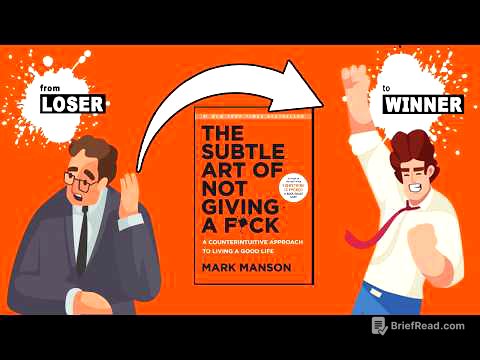TLDR;
This video explores the work of Émile Durkheim, a sociologist who studied the impact of capitalism on individuals and society. Durkheim argued that while capitalism brings economic prosperity, it also leads to increased unhappiness and despair, ultimately driving people to suicide. He identified five key factors contributing to this phenomenon: the rise of individualism, the constant pursuit of success, the erosion of social norms, the decline of religion, and the weakening of family ties. Durkheim believed that modern societies need to find new ways to foster a sense of belonging and solidarity to counter the negative effects of capitalism.
- Capitalism leads to increased unhappiness and despair.
- Durkheim identified five key factors contributing to this phenomenon.
- Modern societies need to find new ways to foster a sense of belonging and solidarity.
Capitalism and the Rise of Individualism [2:01]
Durkheim argued that traditional societies provided a strong sense of belonging and identity through family, community, and religion. Individuals were largely defined by their roles within these structures, with little room for personal choice. However, capitalism ushered in an era of individualism, where individuals are expected to make their own choices about their careers, relationships, and beliefs. While this offers freedom, it also places a heavy burden on individuals, who are solely responsible for their successes and failures. This can lead to feelings of isolation, anxiety, and despair, especially when individuals experience setbacks or disappointments.
The Constant Pursuit of Success [2:56]
Capitalism promotes the idea that anyone can achieve success through hard work and ambition. Advertising and media constantly bombard us with images of luxury and achievement, fueling our desires and creating a sense of dissatisfaction with our current circumstances. This constant pursuit of success can lead to envy, resentment, and a feeling that we are always falling short. Durkheim argued that capitalism fails to acknowledge the inherent pain and sadness of life, instead presenting a distorted view of reality where happiness is always within reach.
The Erosion of Social Norms [3:57]
Traditional societies were characterized by strong social norms that dictated behavior and provided a sense of order and stability. However, capitalism has undermined these norms, leading to a more complex, diverse, and anonymous society. This has resulted in a weakening of collective answers to important questions about life, such as marriage, child-rearing, and morality. The phrase "whatever works for you" reflects this shift, suggesting that society no longer offers clear guidance or support. While this may seem liberating, it can also leave individuals feeling lost and uncertain.
The Decline of Religion [5:12]
Durkheim recognized the importance of religion in providing a sense of community, consolation, and shared meaning. While acknowledging its factual errors, he appreciated the positive aspects of religion. However, he argued that capitalism has undermined the role of religion in modern society, leaving a void that science cannot fill. Science, while intellectually stimulating, lacks the capacity to bring people together in a shared experience of meaning and purpose.
The Weakening of Family Ties [6:21]
Family, once a source of belonging and support, has also been affected by the changes brought about by capitalism. While we still invest heavily in our families, they are not as stable as they once were. Children are less dependent on their parents, and their social circles often diverge. This weakens the sense of shared responsibility and obligation that once characterized family life.
The Need for New Solutions [6:59]
Durkheim's work highlights the challenges of modern life and the need for new solutions. He argued that we need to find ways to create a stronger sense of belonging and solidarity in a society that often leaves individuals feeling isolated and overwhelmed. This requires finding a balance between freedom and responsibility, and developing ideologies that acknowledge the inherent difficulties of life without placing undue pressure on individuals.









